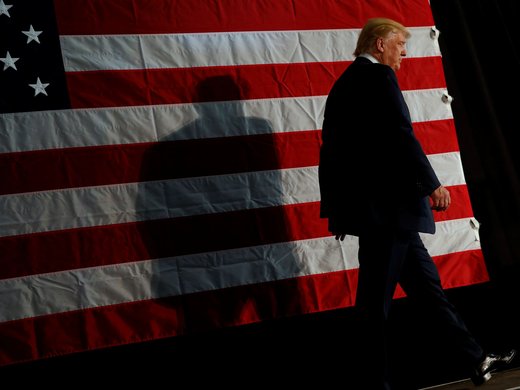“We are imperial. And we are in decline.”
Grim words from Lawrence Wilkerson, former chief of staff to US Secretary of State Colin Powell, who delivered a keynote on “The Travails of Empire,” at this week’s CIGI Signature Lecture.
Discussing his country’s far reach, from its military presence in 50 to 90 nations to its massive role as a trading nation, Wilkerson argued that the United States is in decline because of its own complicity: bad foreign policy decisions and inept manoeuvres in the world. Yet, the wane of American empire is something his country has planned, in a positive way, since World War Two by reviving other nations in the development of their own economies, for example.
The question of American hegemonic power and empire remains debated, particularly since 9/11. Wilkerson, now a distinguished visiting professor at the College of William Mary, attributes America’s empire to more than cultural influence. For him, spending $1.2 trillion on national security (homeland security, intelligence), instruments of hard power such as nuclear weapons, and a pittance on state diplomacy is what, in large parts, makes the United States an imperial state. And with this power, America has preserved its status through carefully considered balances of power in parts of the world including, of course, the Middle East, where strategic interests like affordable oil have been preserved.
“What scares me the most about the empire,” Wilkerson said, “is the disequilibrium of wealth.” He questioned how democracy can be maintained if four hundred people in the United States have a wealth that equals Brazil’s gross domestic product. This problem of the empire’s decline becomes compounded with the rise of other powers — the BRICS for example.
With this decline, Wilkerson explained, comes strategic ineptitude. In empire, where the decision to go to war is made by caesars and not necessarily debated by the senate, danger arises when intelligence personnel make the executive want to do things they’d never thought of doing ten years earlier. This is a problem, Wilkerson explained, when novices are in office —and the United States hasn’t had an expert in office since Dwight D. Eisenhower, he said.
HAVE YOUR SAY: If you attended this lecture, caught the webcast or watched the archived video, we would love to hear your thoughts on the presentation. Start a dialogue by adding your comments below. You can watch this lecture by visiting www.cigionline.org/webcasts.


